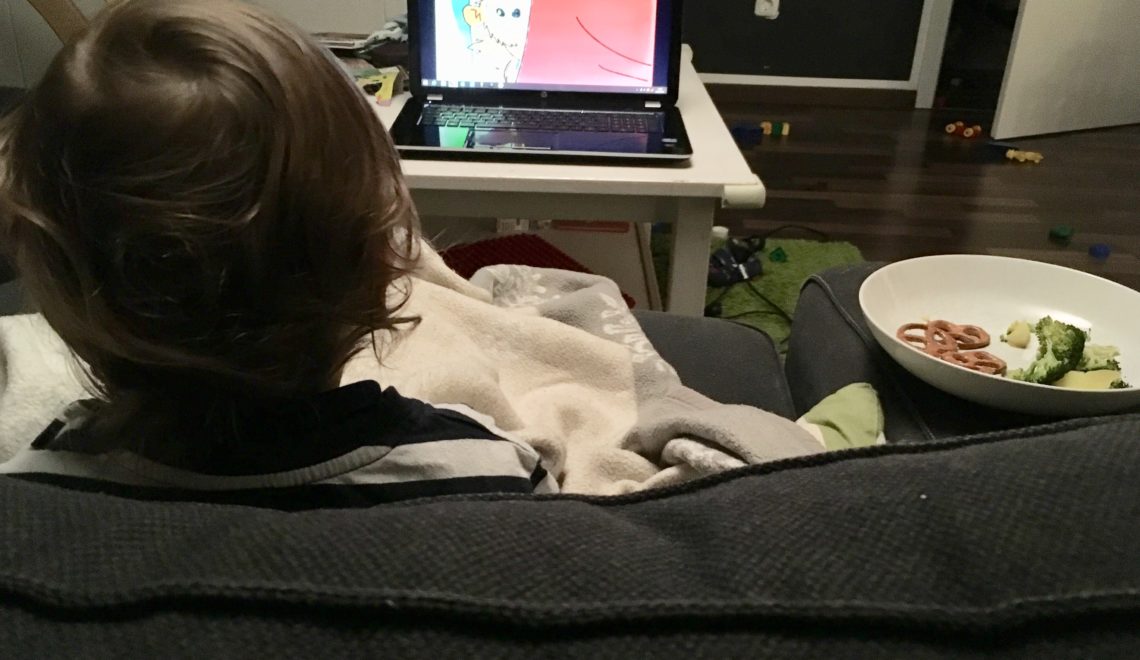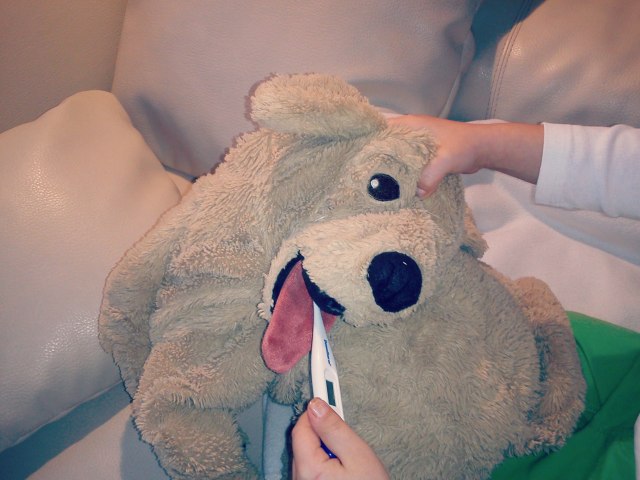
My son is still small, but of course he still knows exactly what he wants and what he doesn’t want: he doesn’t want to put his cars in the box, but he definitely needs to hear a radio play before going to sleep. Looking at my friends with older children and my memory of my own childhood and youth, I know that these discussions will not get any easier over the years. So now is a good time to find out what rights and obligations children really have – that is, from state law, not from parental law.
Children’s obligations: what the state expects children to do
In countless variations from “Do I have to tidy up my room?”, “Do I have to eat the stupid cauliflower?”, “Do I really have to go with Aunt Lotti’s boring birthday?” To “Why do I have to be home at 9:00 p.m.? "Ole is allowed to go out much longer?" Our children constantly ask us if they really need something. And clearly they have to "do" most of it because it is necessary and maybe also because we parents want it that way (because we think it is right).
But what obligations do children really have under the law? Do you have any at all? The Civil Code BGB (§ 1619) states: "As long as the child belongs to the parental household and is brought up or maintained by the parents, the child is obliged to serve the parents in their household and business in a way that is appropriate to their strength and their position in life".
That sounds pretty harsh and old-school, but also something that is important so that family life works together. Especially at times when both parents are increasingly working, it is important that the family pulls together and supports each other (this is of course also important if only one parent is working or none or if there is only one parent).
What child duties can I expect of my child??
The paragraph from the German Civil Code does not give parents an unlimited right to determine their children’s duties. But that doesn’t mean that you can do everything to your child:
Limits of help
How much and what your child has to help with at home is of course a matter of parental discretion. However, it is important that the tasks should always be tailored to the age, maturity and individual physical and mental ability of your child. In addition, learning and playing is definitely more important than washing dishes. So there must still be enough time for school and leisure activities with the imposed child duties. And of course when helping the children there must be no danger to the children – tidy up the room, clean the windows on the fourth floor flop.
How much should children help at what age at home?
Of course, this question cannot be answered in general, because it is always up to the parents to decide how many duties they consider appropriate for their child. Some simply let their child be a child and relieve them of all child duties until their teenage years, others find it important that their child helps to help as early as possible. And in some cases there is no other way than that the children do their part of the family work, because otherwise everyday life would not be able to do anything.
In general, small children like to help. If you pack the tasks in a playful way, even better. And when the children are used to getting involved from an early age, it is easier for them to help later. Child duties in the household are not only a support for you, but also promote your child’s independence and responsibility. But you should also give your children the space to do things their way – that means problem solving and independent thinking.
Children’s rights: Even small people have rights
Where there are obligations, there should be rights. And in the case of our children, there are clearly prescribed children’s rights that we parents must respect. Most children’s rights are totally logical and are naturally respected by us parents. The UN Convention on the Rights of the Child was adopted in 1989 and ratified by most states (including Germany). A universal binding nature of children’s rights is derived from it.
The following four basic principles underlie UN children’s rights (Articles 2, 3, 6 and 12):
- non-discrimination All rights apply without exception to all children. The equal treatment of all people from birth also applies here.
- Priority of child welfare In all legislative, administrative and other measures by public or private institutions, the child’s well-being must be given priority.
- development The basic principle ensures the right of every child to life, survival and development.
- Taking into account the child’s opinion Children have the right to be heard in all matters that affect them. The child’s opinion must be considered appropriately and in accordance with its age and maturity.
In addition, there are of course many other children’s rights in the UN Convention on the Rights of the Child, e.g. These include, for example, the right to protection of identity, privacy, separation from the parents against the will of the child (insofar as this does not conflict with the protection of children’s well-being), protection against damage by the media, against violence, abuse or neglect, and against economic exploitation , from narcotics, from sexual abuse, from kidnapping, protection of refugees and minorities, protection from armed conflicts, protection in criminal proceedings and ban on life imprisonment, etc.
Are child rights in the German Basic Law?
Incidentally, children’s rights are not yet anchored in our Basic Law. In 2007 the children’s rights campaign alliance – Deutsches Kinderhilfswerk, Deutscher Kinderschutzbund, UNICEF Germany – launched the campaign children’s rights into the Basic Law. Since autumn 2018, a broad initiative consisting of around 50 civil society organizations has been launched to jointly carry out publicity campaigns that are intended to clarify the urgency of including children’s rights in the Basic Law. The coalition agreement of the federal government provides for the first time and clearly the anchoring of children’s rights in the Basic Law. A federal-state working group is currently working on a formulation proposal by the end of 2019. A two-thirds majority in the Bundestag and Bundesrat is required to amend the Basic Law. More Info and you can find the opportunity to participate on kinderrecht.de.
What is my child allowed and what not: 9 very practical children’s rights in everyday family life
The UN Children’s Rights Conventions are a great thing and very important. The inclusion of children’s rights in the Basic Law is also worth supporting. But what about very practical children’s rights in our everyday family life? What is my child allowed and what not? The following children’s rights are often demanded by children at home and discussed with us parents. Who is right?
1. Lock room – children have the right to privacy?
A very clear YES! All people, whether old or young, have a right to privacy. Incidentally, this is also enshrined in the UN Convention on the Rights of the Child. From a certain age, it is therefore quite legitimate if your child prefers to open his door or even lock it. Unless you have a reasonable suspicion that your child is at risk, e.g. B. through drugs or self-harm, you should also grant your child this right. There is no right to lock, but definitely a right to knock (which also means that you will stay outside if access is denied – as long as there is no danger).
2. Does my child have the right to invite friends home??
In general, this should not be a right that your child has to demand, but a matter of course. But of course there are situations in which visiting other children is not appropriate or feasible or the domestic situation is simply not available (lack of space, illnesses, etc.). Parents alone determine who is allowed to enter the house because they have the house rights for their house or have the apartment. If you do not like your children’s friends, you may deny them access to your home. Then the kids will probably just meet somewhere else. In such cases, it is always better to talk to your children and try to solve the problem in principle, rather than simply prohibiting it.
3. May I read my child’s letters, emails or messenger messages?
No, you may not. The statutory right to privacy also applies at Swiss Post. The private Messages, in whatever form, are taboo for you – provided there is no reasonable suspicion of a hazard. Of course, this only applies from an age when your children can also read the mail addressed to them. Letters from offices, insurance companies, etc., which even small children already have, may or must be opened by the parents. By the way, your children may not open your mail in return!
4. Who has the right to determine the bedtime?
With young children it is of course clear that the parents decide when the child has to go to bed. But what about teenagers? Does the right to self-determination apply here? Not really, because generally the children have to adhere to the rules of the parents until they reach the age of majority (or as long as they live with the parents). This includes the sleeping times.
For older children, however, it makes sense to set the times together and to tailor them to the individual needs of the children – not every child needs the same amount of sleep. But parents also have the right to rest in the evening.
5. Pocket money – a voluntary or statutory payment?
Many children will be disappointed here: there is no legal entitlement to pocket money. Of course, from a pedagogical and interpersonal perspective, it is still a good idea to give your child some pocket money or to find some other arrangement. Because this way children learn how to use money in a self-determined and hopefully reasonable way.
6. Your child receives pocket money – can buy whatever he wants from it?
Spoken in paragraphs of Article 110 of the German Civil Code: From the seventh birthday, purchases by children are effective if they have been brought about by means that are freely available to them. This means that your child can basically buy what he wants with his pocket money (or other monetary gifts). However, the paragraph does not apply to expensive purchases, which according to the ARAG experts do not usually fall under the so-called regulation "Pocket money paragraph". The corresponding contract can therefore be ineffective without parental approval.
Acquisitions entail follow-up costs, e.g. B. a pet or cell phone contract, are never effective without parental permission.
7. When can children be left at home alone??
Parents have a legal duty to supervise their children. However, this is not exactly defined. From a certain age, it is up to the parents how responsible they consider their child to be at home alone for a while.
8. Does my child have the right to dye piercings, tattoos and hair?
Piercings and tattoos (rightly) require parental consent. According to the ARAG experts, teenagers from the age of 14 can be pierced in the presence of their parents. At 16, the parents no longer have to be there, but must submit a written declaration of consent. From the age of 18 your children can do what they want with their bodies. Hair coloring is also to Age of majority actually forbidden without your permission. But most parents let themselves be talked about on this point.
9. My teenage child can just move out?
Puberty is often high at home. There is an argument, doors slammed and a threat to move out. Fortunately, this is only a phase and moving out requires the express consent of the parents. Paragraph 1631 of the German Civil Code states that personal care for parents includes the right to determine where the child lives. If your teenager is serious and is actually looking for his own place to stay (which in practice should be very difficult in general), the rental contract concluded by the teenager is not effective without the permission of the parents.
RELATED ITEMS
-

My child can watch TV! Child 2 years is allowed to watch TV – you and your child
Scandalous statement, isn’t it? And so confident … "My child can watch TV! – Child 2 years is allowed to watch TV "… It sounds totally somehow…
-

Children’s rights, child poverty and the importance of early education, early education online
Children’s rights The German League for the Child celebrated its interdisciplinary annual conference in the Berlin House of Representatives…
-

My child has a fever – mom is a pediatrician
… and off to the emergency room? Finally it happened: my good friend – a young mother who is still fairly new, and I – a fairly new one…
-

My body and what my parents can forbid me, child’s affair
It’s my body! Many children want to decide more about their looks and other things. What can parents prohibit? Cut hair and…
